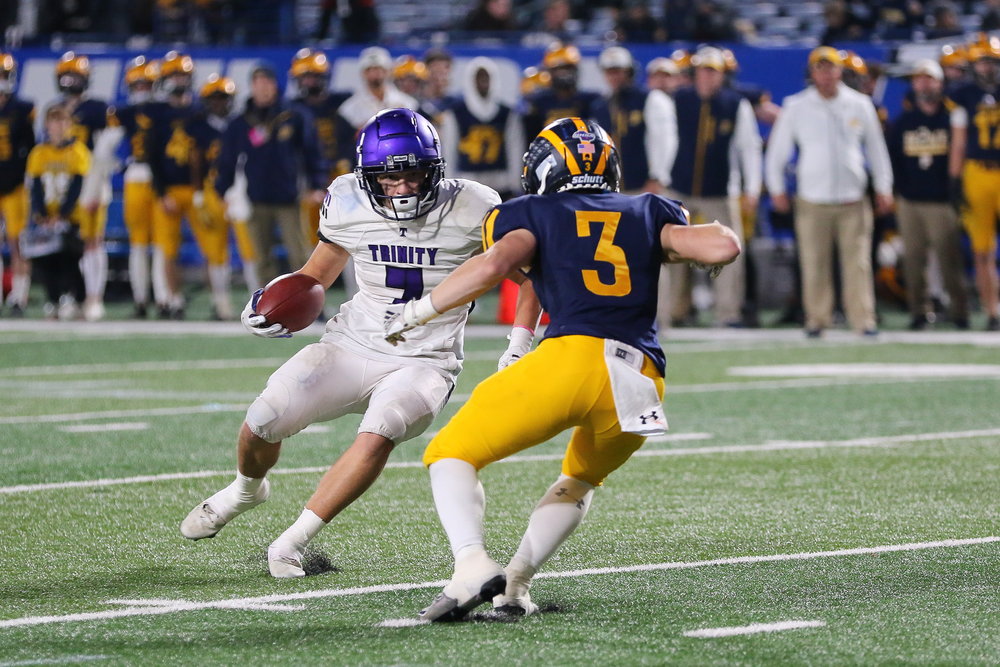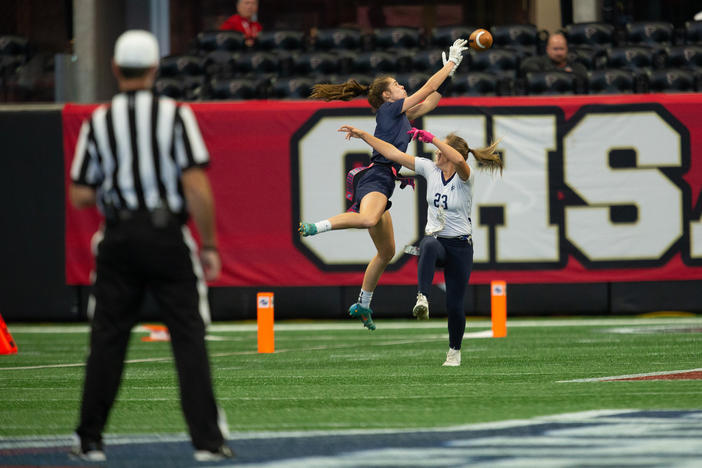
Caption
Trinity Christian defeats Prince Avenue Christian in the 2021 GHSA Class A Private state championship at Center Parc Field in Atlanta. The Lions jump from Class 1A to 4A when the new reclassifications go into affect this upcoming season.
Credit: Javy Gonzalez/GPB Sports






